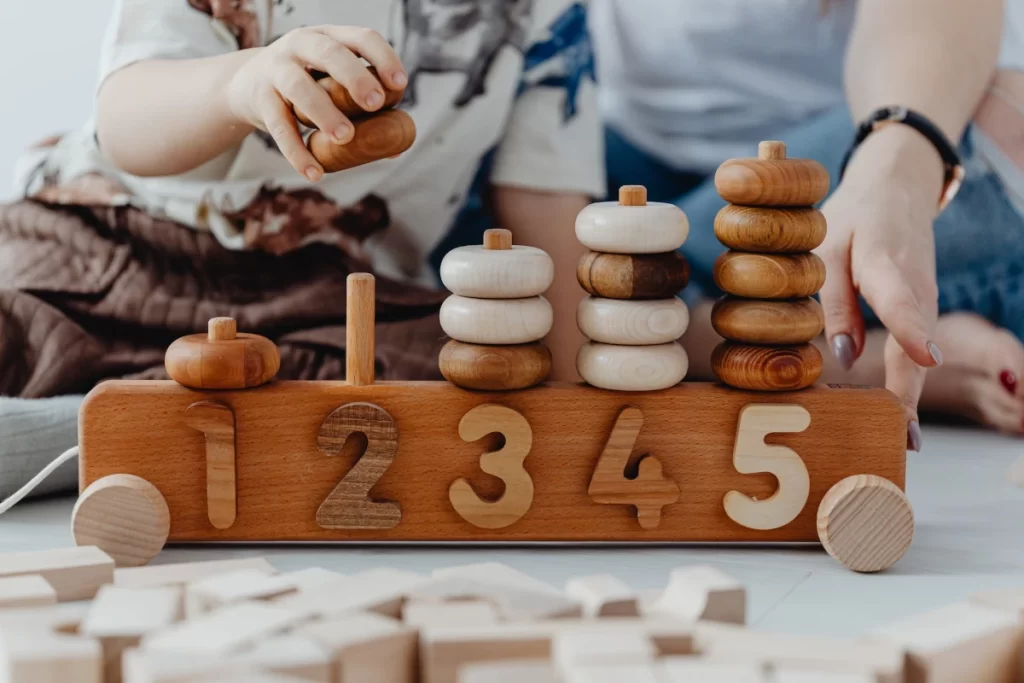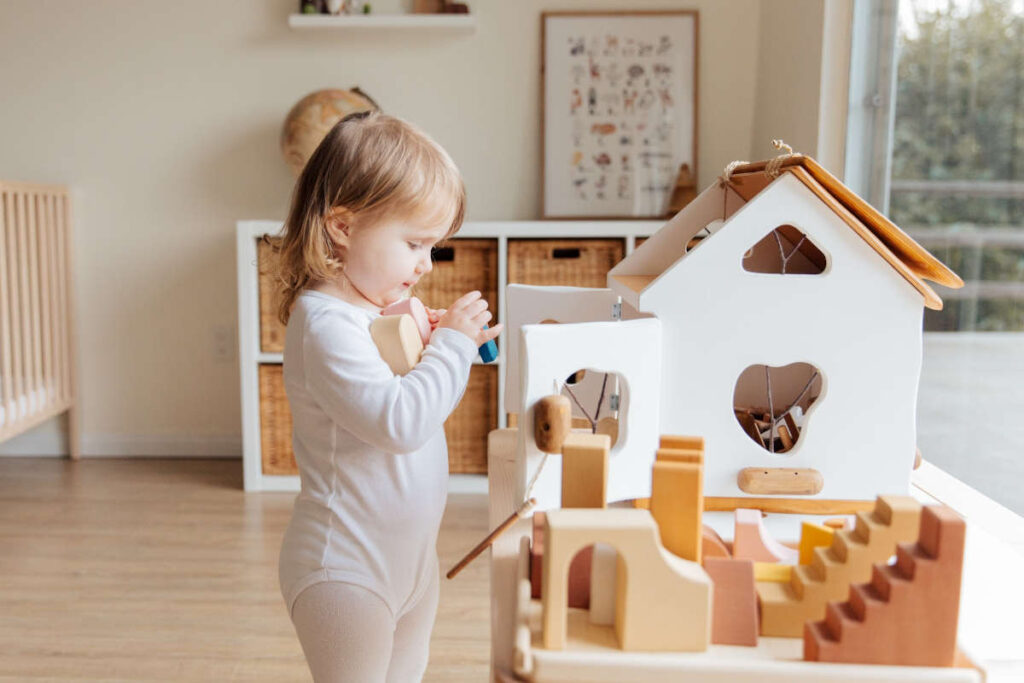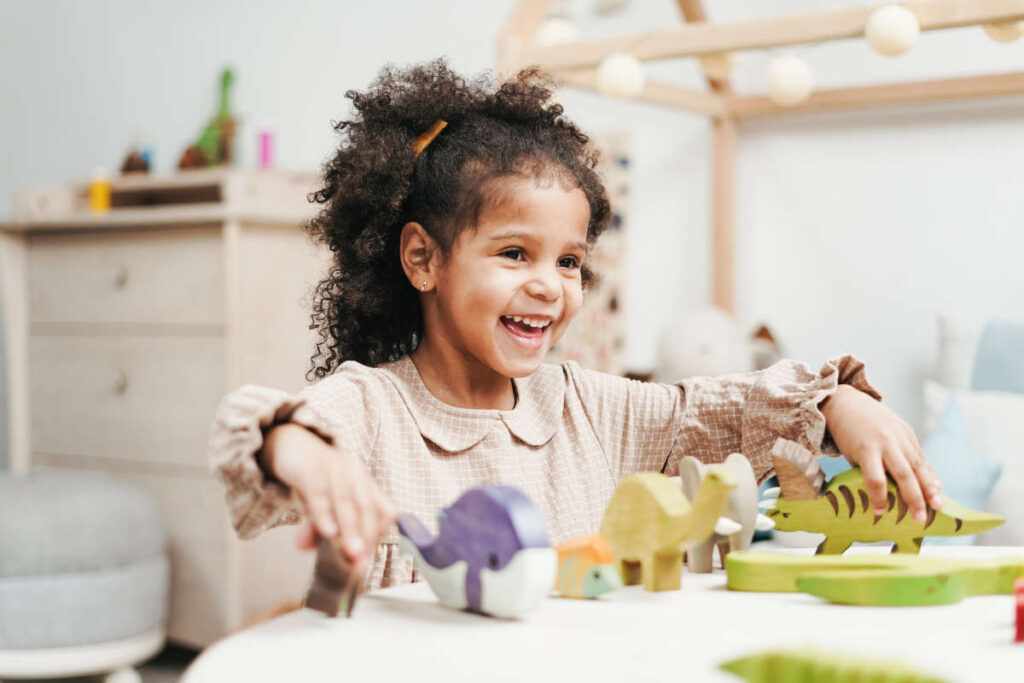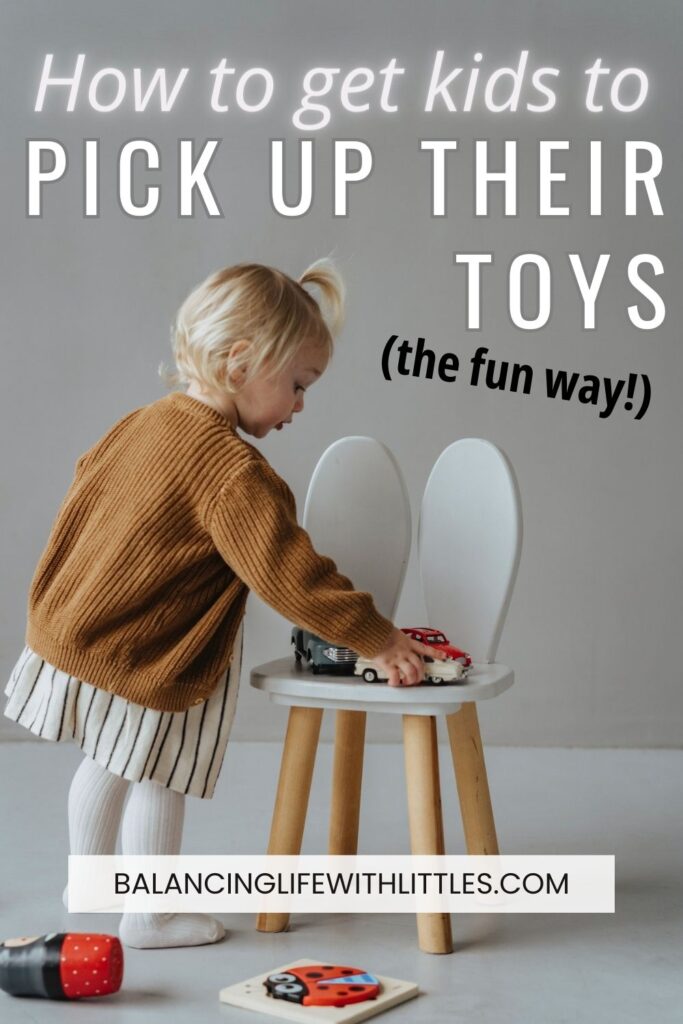How to Get Kids to Pick Up Their Toys (2-4 years old)
Want your little one to pick up their toys without having to nag them about it? Try these fun tricks that will make your child eager to cooperate. Plus, you’ll turn your little one into a lover of a clean and tidy space.

*This post may include affiliate links for your convenience. I only recommend products I genuinely enjoy and believe you will too. Purchasing through these links supports my blog, enabling me to continue sharing exciting content with you. You will never pay extra by using these links.
Are you struggling with finding the energy and desire to teach your kids to clean? Check out How to Enjoy Cleaning Your Home – 7 Tips.
At What Age Should a Child Pick Up Their Toys?
The age at which children can start picking up their toys and keeping their play area tidy can vary, but you can begin teaching them this responsibility at a relatively early age. Here are some general guidelines:
- Toddlers (1-2 years): Toddlers are still developing their motor skills and may not be capable of picking up toys independently, but you can introduce the concept of cleaning up by involving them in the process. Encourage them to help you put toys in a container or toy box.
- Preschoolers (3-4 years): Many preschool-aged children are capable of picking up their toys with guidance. Make it a normal part of their playtime to clean up when they are finished. You may still need to provide assistance.
- Early Elementary (5-7 years): By this age, most children can be expected to pick up their toys independently. They should have the understanding to clean up after themselves without constant reminders. However, needing some reminders is normal!
Join the Life with Littles Club!
Discover how to find joy in homemaking, have a peaceful home, and inspire your littles to learn!
Why Should Kids Learn to Pick up Their Toys?
Teaching kids to pick up their toys goes beyond simply maintaining a tidy home. It instills crucial life skills, values, and habits that prepare them for adulthood. Teaching kids to pick up their toys is an important aspect of their development for several reasons:
- Responsibility: Learning to pick up toys teaches children responsibility for their belongings. It helps them understand that they are accountable for taking care of their things and keeping their living spaces tidy.
- Organization Skills: Cleaning up toys fosters organizational skills. Children learn how to categorize and arrange items, which can be valuable later in life when managing their possessions, schoolwork, and even workspaces.
- Time Management: Picking up toys helps children develop a sense of time management. They learn that completing tasks efficiently allows them to move on to more enjoyable activities sooner.
- Respect for Shared Spaces: In shared living spaces, like a family room or playroom, teaching kids to clean up after themselves promotes respect for others who use the same space.
- Safety: A clutter-free environment is safer for children. When toys are left scattered, it can create tripping hazards or lead to accidents. Teaching them to pick up their toys helps maintain a safer living space.
- Emotional Benefits: Cleaning up can have emotional benefits. It provides a sense of accomplishment and order, reducing stress and anxiety for both children and parents. It also helps children develop a positive self-image and self-esteem.

How to Get Kids to Pick Up Their Toys
Here are some tricks for how to get kids to pick up their toys in a fun way! My twins LOVED these when they were between the ages of 2 and 4!
If your child doesn’t have much experience with picking up their own toys, I recommend you help them a lot at first. You can gradually fade how much you’re helping over time as they get the hang of it.
1. Count Together
Count the items while putting them away. See how high you guys can count together!
2. Reverse Psychology
Tell them the opposite of what you want them to do.
For example, “Don’t pick up anymore. That’s way to much! That box is too heavy for you, isn’t it? You can’t carry that into the other room! You don’t know where this toy goes, do you?”
Kids will love to prove you wrong!
3. Point out the Categories
Help your child break down the mess into categories. Take turns calling out the categories that you see.
Then tell your child which category you will work on, and ask them which category they will put away.
4. Act Blind
While assisting with putting away a certain category of toys, purposely leave a few out. Then tell your child that you picked up all the “cars” for example.
Wait for your child to point out that you missed a few. When they do, pretend like you don’t see them. Say, “Where? I don’t see anymore. I’m pretty sure I got them all.”
Hopefully, they pick it up for you and either hand it to you or put it away themselves!
They will love feeling like a big kid helping out their mama.
5. Act Forgetful
Pick something up, and ask where it goes. Or, put it in the wrong spot, and say, “I put away the cars”. They’ll see them in the wrong bin and think it’s hilarious.
They’ll love correcting you!
6. Find the Biggest Toy
Ask your child to find the biggest toy that’s out of place. Have them grab it and put it away. Then look for the next biggest toy.
Continue until only small toys are left.
7. Change How the Items Move
Make the toys fly like airplanes, hop like bunnies, zoom like cheetahs, slither like snakes, or crawl like snails all the way to their destination.

What to do When a Child Won’t Pick Up Toys?
When kids won’t pick up their toys, it can be very frustrating. I don’t need to explain it to you. You know the struggle!
Here are some steps to take when your kids refuse to pick up their toys.
- Stay Calm: First, remain calm and composed. Yelling or getting angry can escalate the situation and make it more challenging for everyone involved.
- Communicate Clearly: Talk to your children about the importance of cleaning up their toys. Explain why it’s necessary to keep the space tidy and how it benefits them.
- Offer Choices: Sometimes, kids may be more willing to cooperate if they feel like they have some control. Offer choices, such as letting them decide whether to clean up the toys now or in a few minutes.
- Set a Timer: If your child is resistant, try setting a timer for a short clean up session. Tell them they only need to clean up for a specific amount of time, which can make the task feel less overwhelming.
- Natural Consequences: If your child continues to refuse to clean up, implement natural consequences. For example, let them know that any toys left out will be temporarily taken away or that they won’t have access to a preferred activity until the clean up is done.
- Work Together: Offer to help your child clean up their toys. Sometimes, they may be more willing to participate if they see you joining in. Use this as a bonding opportunity.
- Stay Consistent: Consistency is key. Stick to the rules and consequences you’ve established, so your child understands that there are consequences for not cleaning up.
- Offer a Reward: Consider giving them a reward for cleaning up their toys. For example, they can have screen time or a treat once they’ve completed the task.
- Create a Clean up Routine: Establish a consistent clean up routine as part of their daily or weekly schedule. When it becomes a habit, children are less likely to be resistant.
- Involve Them in Problem-Solving: Engage your child in finding solutions to the clean up problem. Ask for their ideas on how to make it more enjoyable or efficient.
- Seek Their Input: Ask your child if there’s a specific reason they don’t want to clean up their toys. They might have concerns or anxieties you’re not aware of, and addressing those can help.
- Reduce Amount of Toys: Limit the amount of toys your child has access to at one time. Store away the majority of their toys and rotate them as needed. This will make clean up less overwhelming.
Pin this post to save these tips for later!

Remember that every child is unique, and what works for one may not work for another.
Be patient, adaptable, and willing to try different approaches until you find what resonates with your child and helps them understand the importance of learning how to pick up their toys!
Join the Life with Littles Club!
Discover how to find joy in homemaking, have a peaceful home, and inspire your littles to learn!


